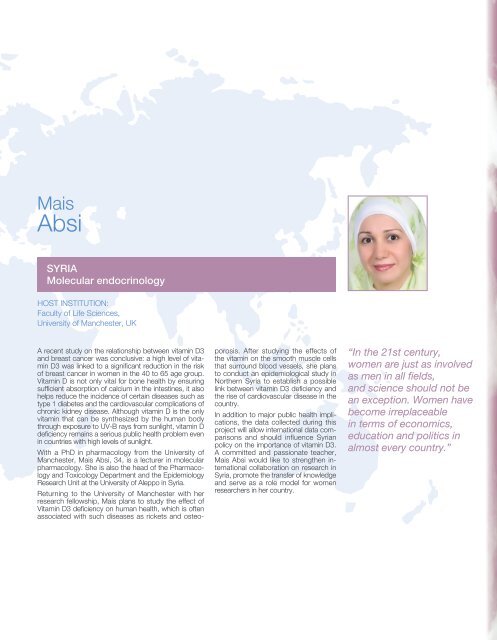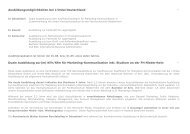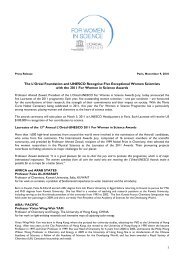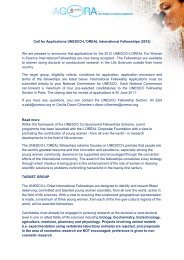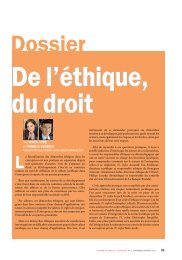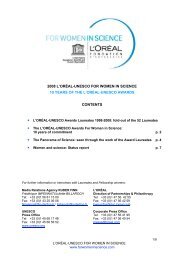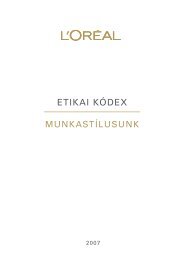2011 EDITION
2011 EDITION
2011 EDITION
You also want an ePaper? Increase the reach of your titles
YUMPU automatically turns print PDFs into web optimized ePapers that Google loves.
Mais<br />
Absi<br />
SYRIA<br />
Molecular endocrinology<br />
HOST INSTITUTION:<br />
Faculty of Life Sciences,<br />
University of Manchester, UK<br />
A recent study on the relationship between vitamin D3<br />
and breast cancer was conclusive: a high level of vitamin<br />
D3 was linked to a significant reduction in the risk<br />
of breast cancer in women in the 40 to 65 age group.<br />
Vitamin D is not only vital for bone health by ensuring<br />
sufficient absorption of calcium in the intestines, it also<br />
helps reduce the incidence of certain diseases such as<br />
type 1 diabetes and the cardiovascular complications of<br />
chronic kidney disease. Although vitamin D is the only<br />
vitamin that can be synthesized by the human body<br />
through exposure to UV-B rays from sunlight, vitamin D<br />
deficiency remains a serious public health problem even<br />
in countries with high levels of sunlight.<br />
With a PhD in pharmacology from the University of<br />
Manchester, Mais Absi, 34, is a lecturer in molecular<br />
pharmacology. She is also the head of the Pharmacology<br />
and Toxicology Department and the Epidemiology<br />
Research Unit at the University of Aleppo in Syria.<br />
Returning to the University of Manchester with her<br />
research fellowship, Mais plans to study the effect of<br />
Vitamin D3 deficiency on human health, which is often<br />
associated with such diseases as rickets and osteo-<br />
porosis. After studying the effects of<br />
the vitamin on the smooth muscle cells<br />
that surround blood vessels, she plans<br />
to conduct an epidemiological study in<br />
Northern Syria to establish a possible<br />
link between vitamin D3 deficiency and<br />
the rise of cardiovascular disease in the<br />
country.<br />
In addition to major public health implications,<br />
the data collected during this<br />
project will allow international data comparisons<br />
and should influence Syrian<br />
policy on the importance of vitamin D3.<br />
A committed and passionate teacher,<br />
Mais Absi would like to strengthen international<br />
collaboration on research in<br />
Syria, promote the transfer of knowledge<br />
and serve as a role model for women<br />
researchers in her country.<br />
“In the 21st century,<br />
women are just as involved<br />
as men in all fields,<br />
and science should not be<br />
an exception. Women have<br />
become irreplaceable<br />
in terms of economics,<br />
education and politics in<br />
almost every country.”


